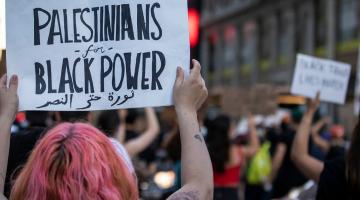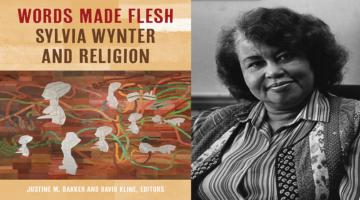White supremacist Democrats staged a military assault on the last bastion of biracial government in the South, killing scores of Blacks and driving thousands out of North Carolina’s largest city.
“White supremacy consolidated its power through political calculation, racist defamation, intimidation, terrorism, and premeditated, remorseless violence.”
Wilmington’s Lie
The Murderous Coup of 1898 and the Rise of White Supremacy
David Zucchino
Atlantic Monthly Press
ISBN-13 978-0-8021-2838-6
The curtain of segregation and white supremacy fell so hard on African Americans in the first six decades of the 20th century that, in hindsight, its crushing power takes on a certain air of inevitability. As a result, sometimes we tend to overlook the particulars of its origins.
We know that the Supreme Court’s unanimous decision in Brown v. Board of Education (1954) dismantled the legal underpinnings of Southern segregation and the entrenched doctrine of “separate but equal,” as established 58 years earlier in another landmark court ruling, Plessy v. Ferguson (1896).
But the codification of that “separate but equal” doctrine and the brutal, decidedly unequal conditions of segregation for which it cleared the way was hardly an inevitable consequence of prevailing attitudes on race at the turn of the century. Likewise, its judicial reversal in Brown—or the prolonged, painful, costly, and unfinished struggle to make Brown’s challenge to white supremacy stick—didn’t simply happen because the immutable forces of history had their way.
The negation of the egalitarian impulses of Congressional Reconstruction and the triumph of segregation at the turn of the century didn’t begin with Plessy. The white supremacist revolution that overturned the seemingly self-evident implications of the 13th, 14th, and 15th amendments and African Americans’ relentless struggle for self-determination came about not, primarily, through the tidy outcomes of court cases, legislation, or electorally articulated popular will. Rather, white supremacy consolidated its power through political calculation, racist defamation, intimidation, terrorism, and premeditated, remorseless violence.
“Perhaps the final nail in the coffin of Reconstruction.”
One reason 20th century Jim Crow’s 19th century backstory remained obscured for so long is the power of political propaganda before and after the fact that buried our history’s ugliest moments and distorted the details that survived.
One of the most cataclysmic and little known or understood events in the rise of white supremacy in the late 1800s—and perhaps the final nail in the coffin of Reconstruction, two decades after the removal of federal troops from the South—occurred in Wilmington, North Carolina on November 10, 1898, when white supremacists engineered a military coup to overthrow the city’s elected government.
In a single day white militias burned a black newspaper office to the ground, attacked the black population en masse with a staggering arsenal—including a rapid-fire Gatling gun—and drove the remnants of the Wilmington’s Fusionist (a racially integrated Republican-Populist party) government from the city, quickly installing coup leaders in its place.
In Wilmington’s Lie: The Murderous Coup of 1898 and the Rise of White Supremacy, Pulitzer Prize-winning journalist David Zucchino cuts through a century of propaganda, myth, and big white lies to unmask the stunning history of the Wilmington coup, its origins in the political climate of the era, and its far-reaching implications for North Carolina and the rest of the resurgent Confederacy in the decades that followed.
“Zucchino cuts through a century of propaganda, myth, and big white lies.”
Much like Steve Luxenberg in his similarly well researched and swiftly paced Separate: The Story of Plessy v. Ferguson and America’s Journey from Slavery to Segregation, Zucchino introduces a cast of fascinating and remarkably well-drawn characters that populate his narrative. As such, Wilmington’s Lie could benefit from a dramatis personae like the one that precedes the opening pages of Separate.
Zucchino depicts Wilmington as a city with a large and uncharacteristically affluent black population, including an influential and fearless newspaper editor and publisher in the Record’s Alexander Manly, and a number of blacks serving in the city government and police force. Wilmington was also, at that time, the preeminent city in a state still run (if somewhat ineffectually) by a Republican governor, Wilmington native Daniel Lindsay Russell.
In 1898, many years into the Redemption era—in which white supremacist Southerners “redeemed” their states from the Republican ravages of Reconstruction (foremost among them black male suffrage)—North Carolina stood apart from some other states in that Republicans retained a strong influence in the state. What’s more, many blacks were still participating actively in elections and government.
“North Carolina stood apart from some other states.”
Wilmington’s unusual heritage as a place where freemen and freedmen thrived enhanced its appeal for middle-class blacks three decades after the end of the Civil War. The elections of November 9, 1898, afforded Democrats and white supremacists an opportunity to take back a considerable portion of Wilmington’s local government, although some offices would remain beyond their electoral reach for another five months.
Paying close attention to Wilmington affairs in the run-up to the election was Josephus Daniels, editor and publisher of North Carolina’s largest newspaper, the Raleigh-based News & Observer. Daniels emphatically positioned his paper as “the militant voice of white supremacy.”
In 1898 Daniels mounted a virulent propaganda campaign against Wilmington’s Fusionists. Daniels’ purpose was twofold: Through his own scathing editorials and the jarringly racist political cartoons of his protégé Norman Jennett, the News & Observer portrayed Fusionists and Republicans as treasonous enemies of the South, and Wilmington blacks as buffoons, brutes, and rapists, allegedly arming themselves for riot and race war.
“The News & Observer portrayed blacks as buffoons, brutes, and rapists.”
Also sounding the call for white supremacist revolution was Alfred Moore Waddell, a Confederate colonel and former North Carolina congressman desperate for a path back into power. Waddell was convinced, Zucchino writes, “that no other white man in Wilmington possessed his ability to draw lessons from the past and proscribe the future.” Days before the 1898 elections, Waddell told an assembled crowd of Wilmington whites, “We will have no more of the intolerable conditions under which we live. We are resolved to change them if we have to choke the Cape Fear with carcasses!”
Indeed, as Zucchino so vividly recounts, Waddell successfully intimidated the vast majority of Wilmington’s blacks into avoiding the polls on November 9, securing the desired Democratic landslide. The following day, Waddell would lead the charge of 2,000 white supremacists to wage war on Wilmington’s black citizens, killing at least 60, driving 1,500 or more into hiding in the swamps and forests outside of town, and permanently exiling hundreds more.
Waddell’s coup would also force what remained of the Fusionist government to leave the city. He installed himself as mayor, with a full complement of like-minded white supremacists joining him in power.
“Wadell waged war on Wilmington’s black citizens, killing at least 60, driving 1,500 or more into hiding in the swamps.”
Wilmington’s Lie proves equally revelatory in Zucchino’s portrayal of the aftermath of the bloody coup, in which the implications of the book’s title become frightfully clear. Zucchino details how the myths that Waddell, Daniels and others created before and after the events of November 10 gave rise to legal campaigns to crush black male suffrage in North Carolina and effectively drive blacks out of political and electoral power for decades to come. Zucchino astutely describes the North Carolina suffrage amendment of 1899–1900 and the “grandfather clause” that virtually nullified blacks’ voting rights as “marvels of political opportunism” quickly copied by other states throughout the South.
These laws left blacks in a state of near-complete disenfranchisement throughout most of the region until the Voting Rights Act of 1965—just one example of the staggering consequences of an outrage still little-known outside of North Carolina, and barely acknowledged in the city of Wilmington itself for more than a century after it occurred.
As Zucchino also notes, sustaining the odious legacy of Daniels, Waddell, and others, the Republican supermajority North Carolina legislature of the mid-2010s continued to innovate in the strategic perpetuation of white supremacist electoral power, returning the state to the vanguard of systemic African American vote suppression.
Steve Nathans-Kelly is a freelance writer and editor. Many of his book reviews have appeared in online magazine Paste.
This article previously appeared in New York Journal of Books and Portside.
COMMENTS?
Please join the conversation on Black Agenda Report's Facebook page at http://facebook.com/blackagendareport
Or, you can comment by emailing us at comments@blackagendareport.com



















